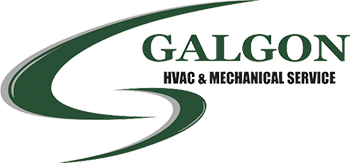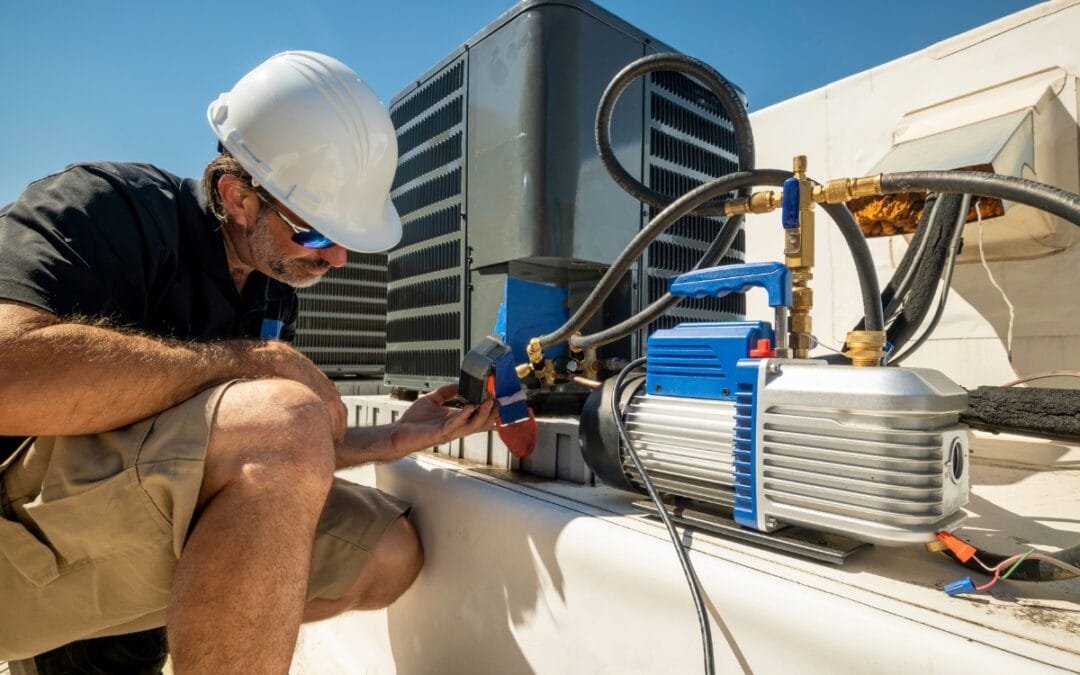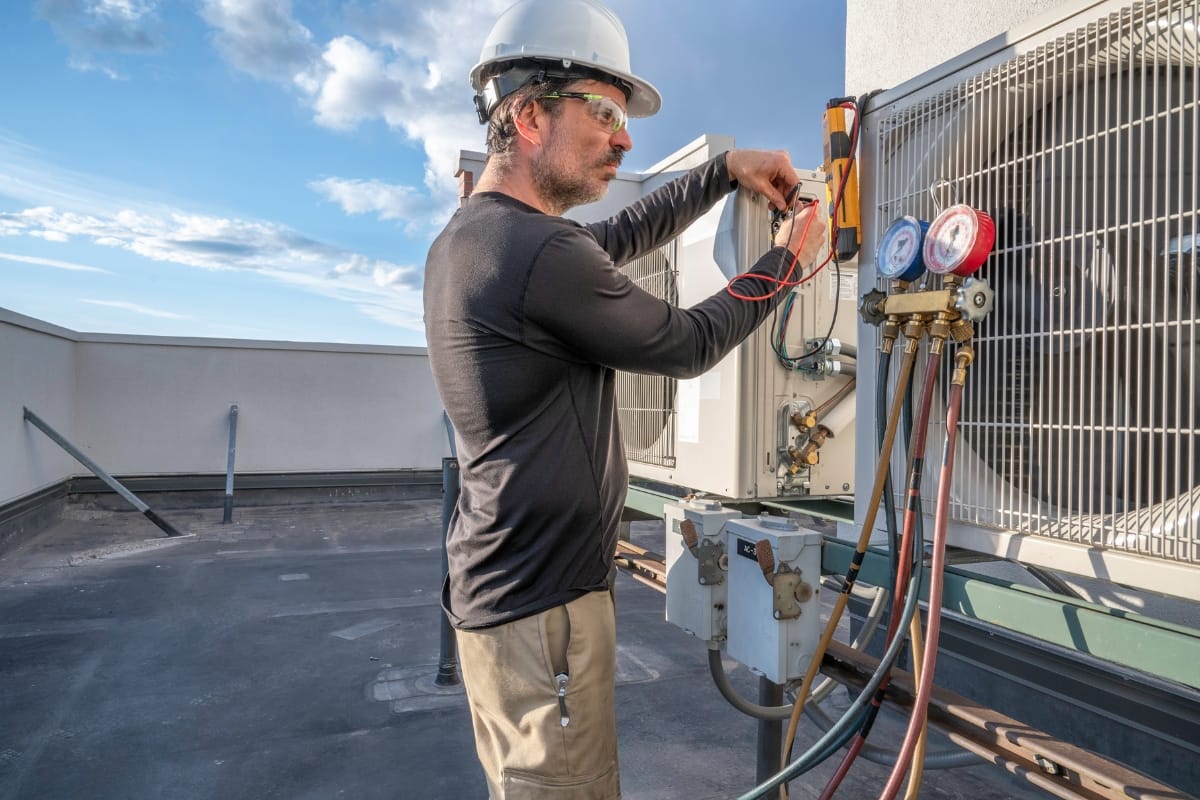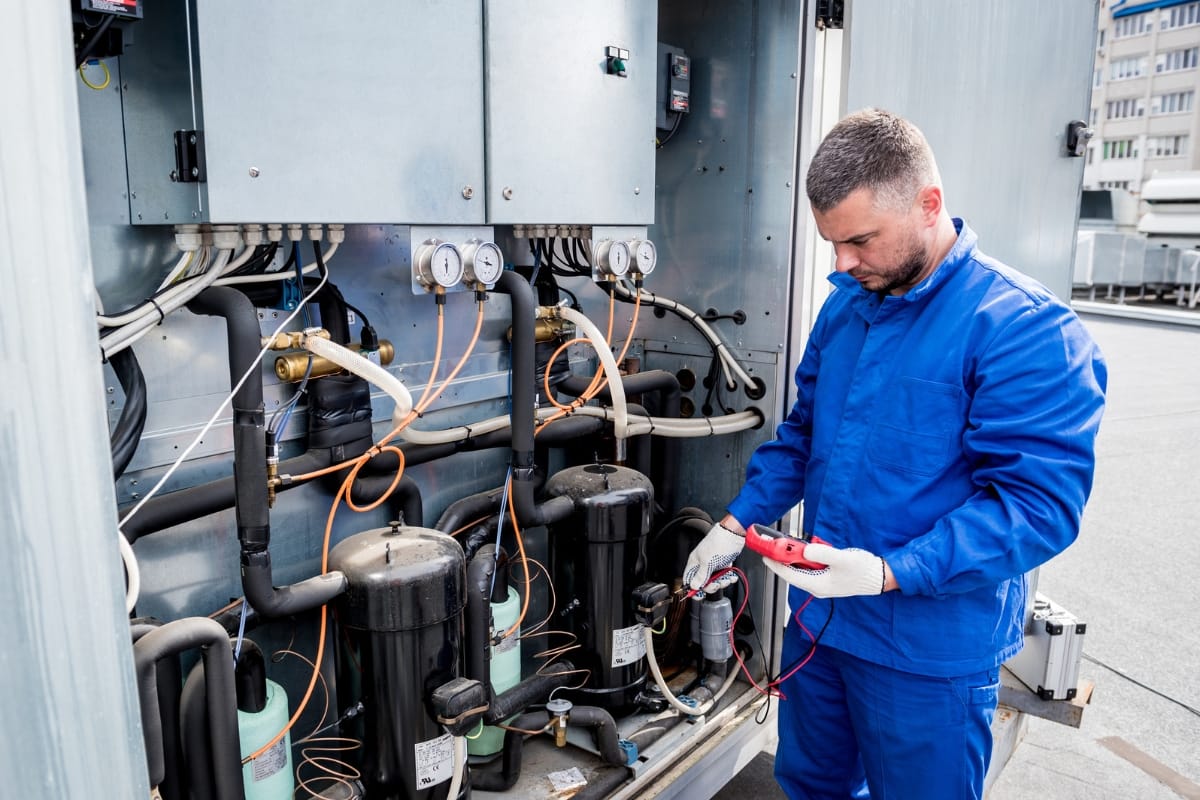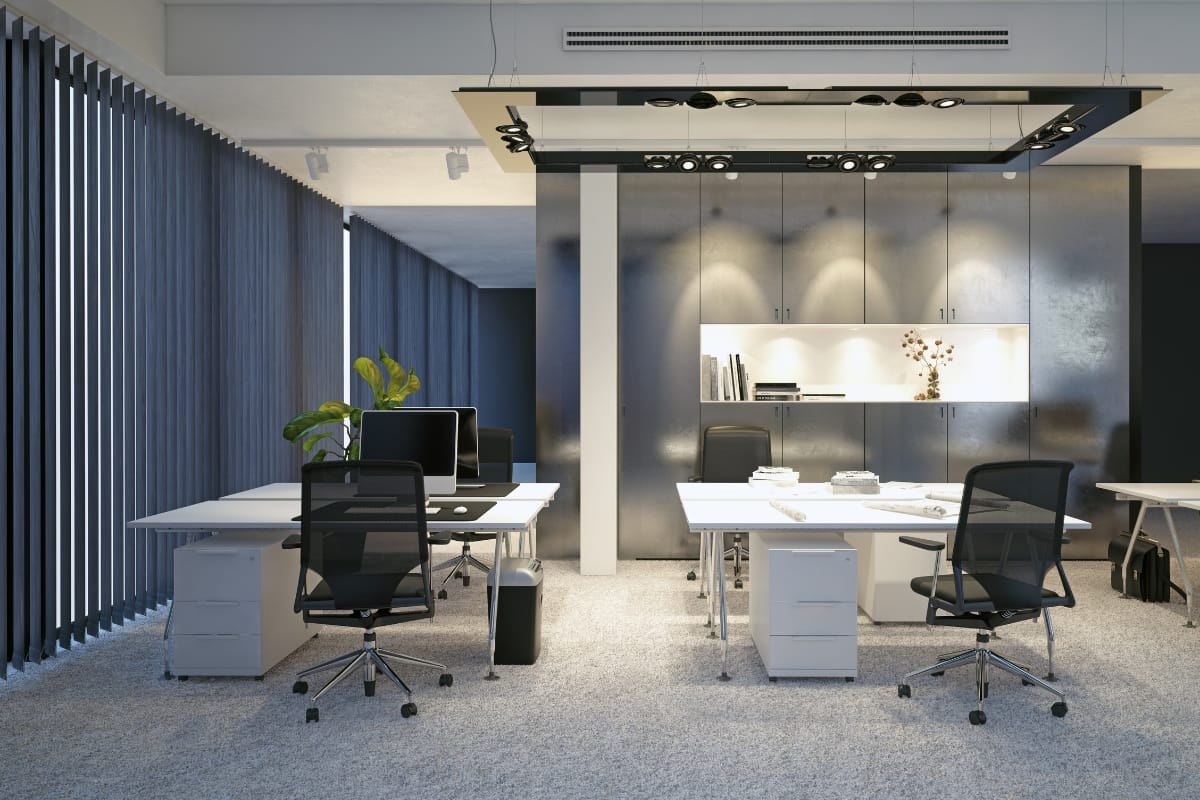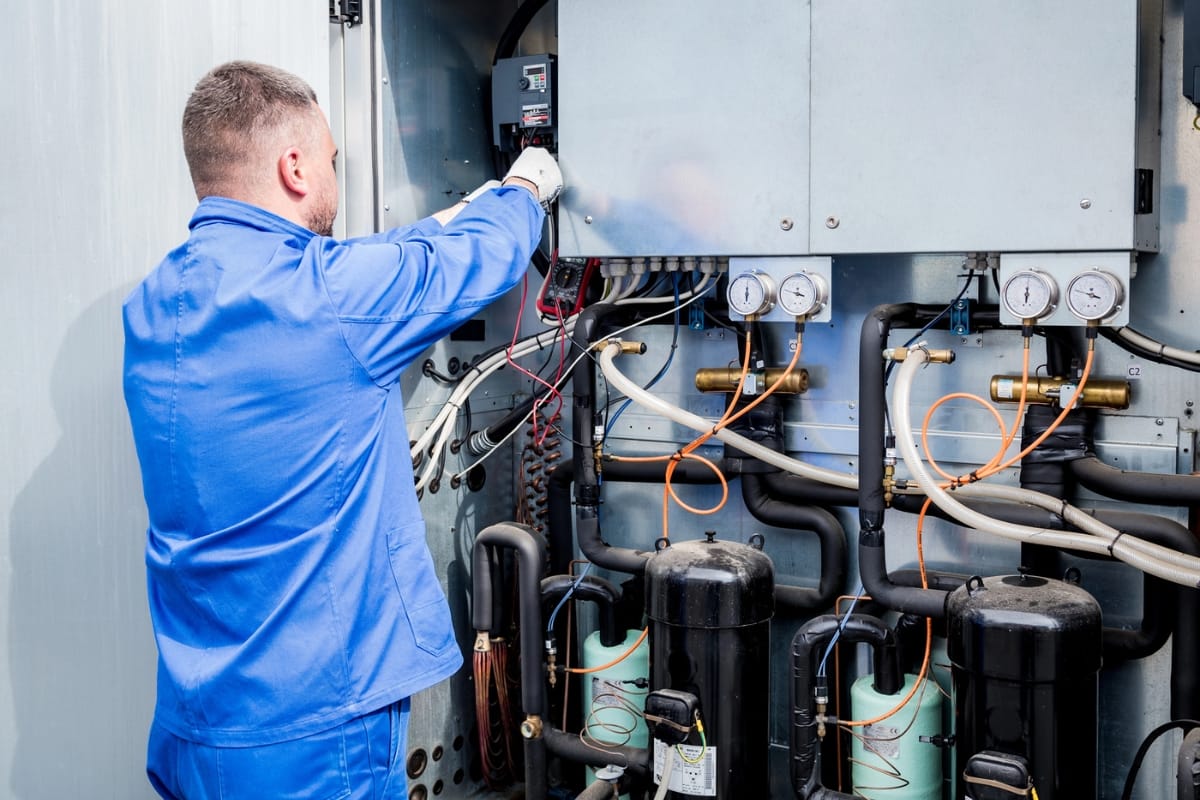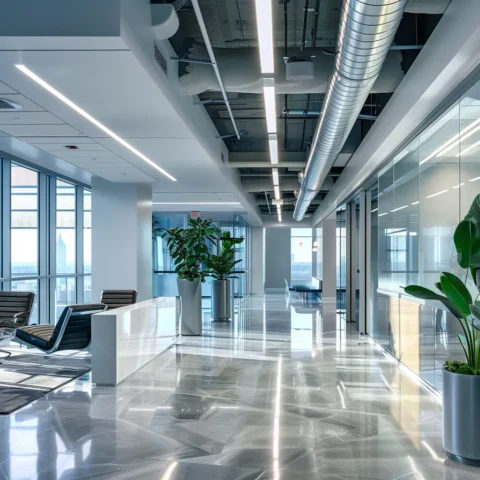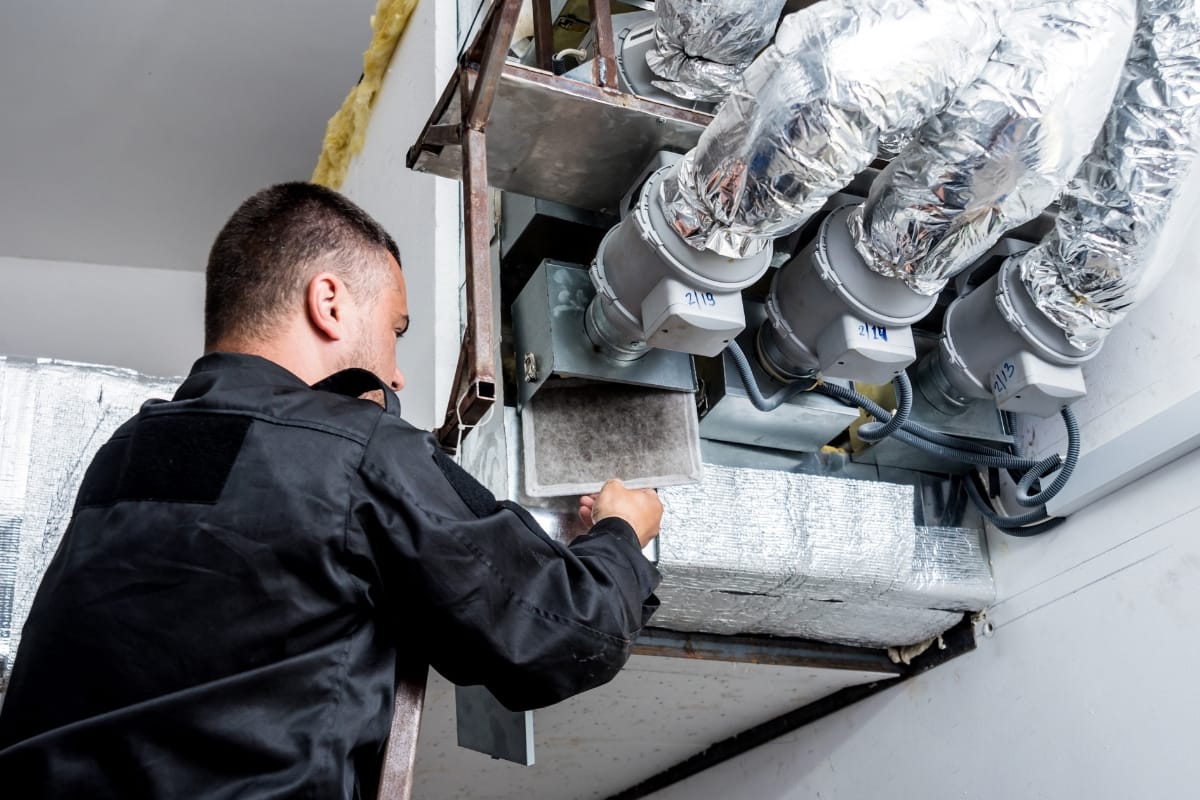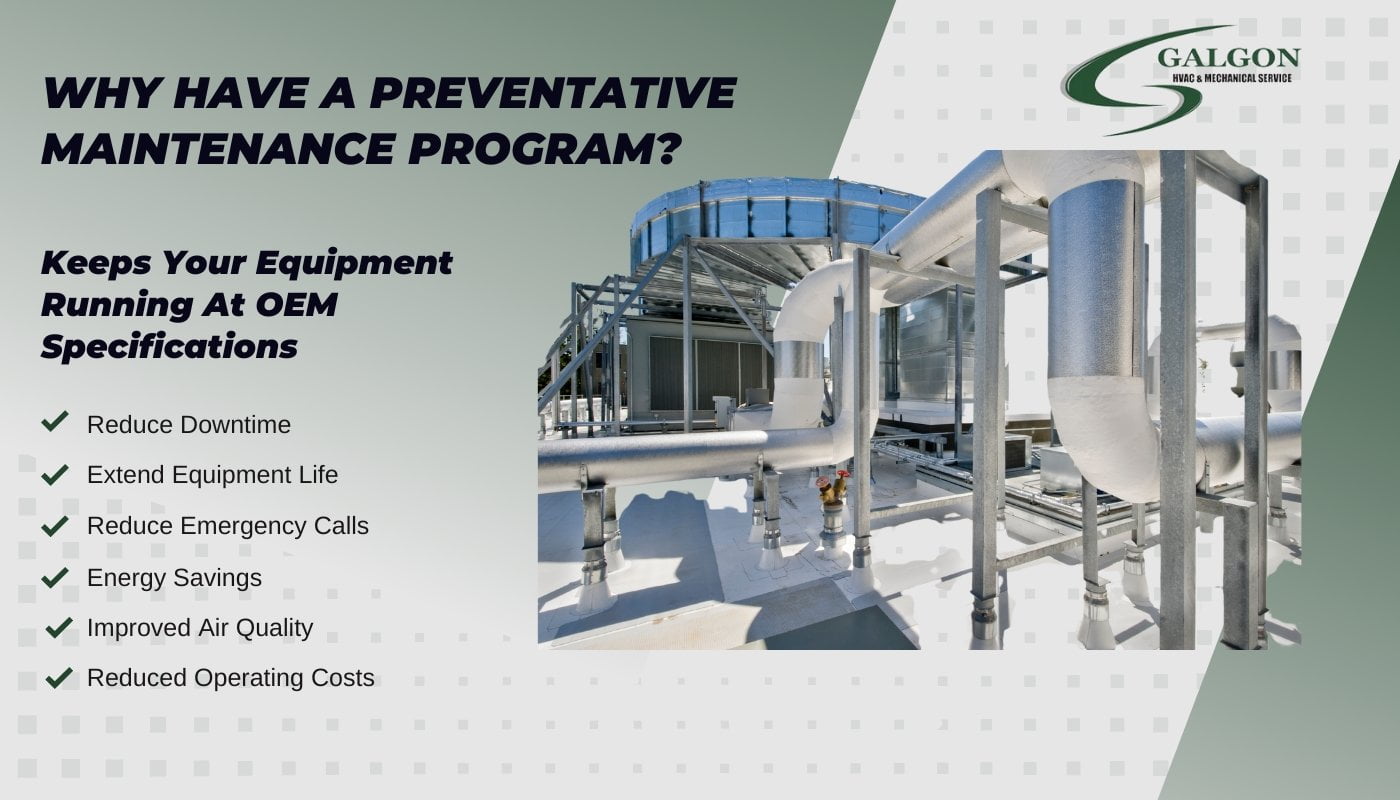With Atlanta’s hot and humid summers, industrial HVAC systems work overtime to keep buildings cool and comfortable. That’s why summer is the ideal time for a thorough HVAC tune-up—before peak demand puts extra strain on your system. Regular maintenance not only improves efficiency and reduces energy costs but also helps prevent unexpected breakdowns during the hottest months of the year. In this guide, we’ll explore why summer is the best season for commercial HVAC tune-ups in Atlanta and how timely maintenance can keep your business running smoothly, no matter how high the temperatures climb.
How Commercial HVAC Tune-Ups Keep Your Business Running Smoothly
Importance of Regular HVAC Maintenance
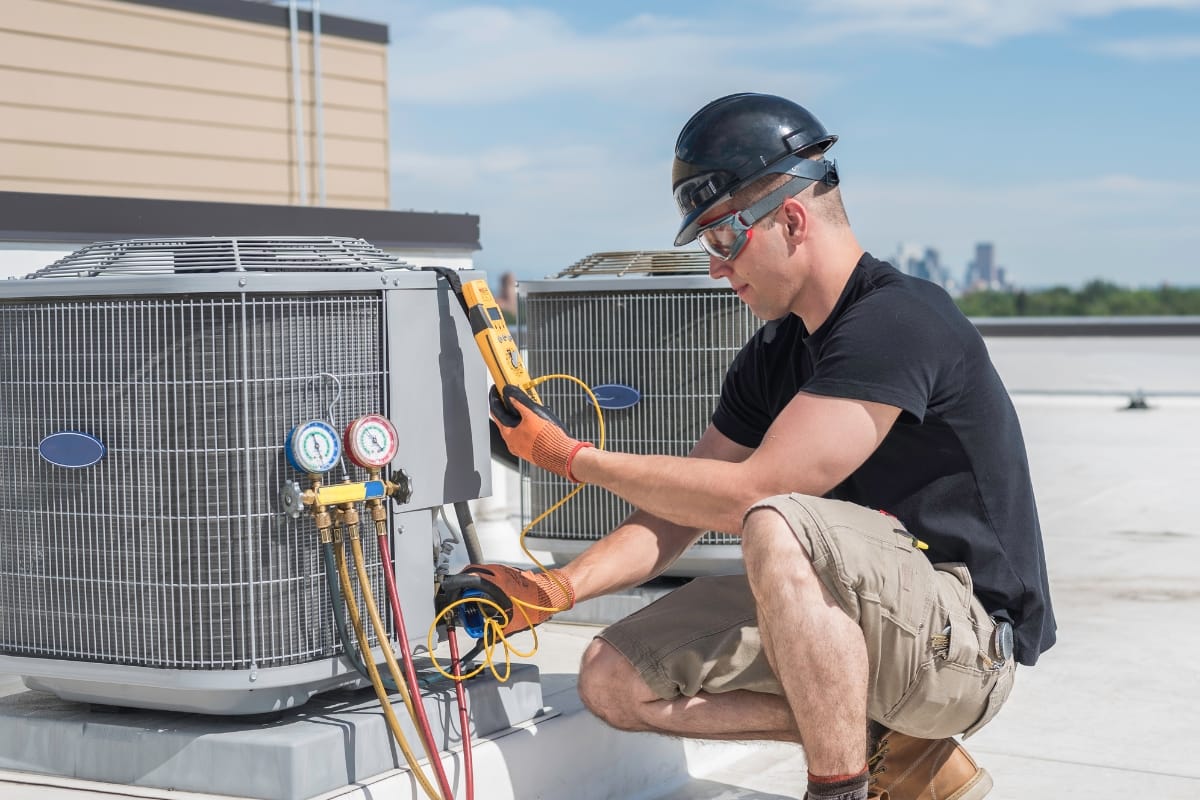
Routine commercial HVAC maintenance is essential for keeping commercial systems running efficiently and reliably, especially in a climate like Atlanta’s, where the heat can put serious strain on cooling equipment. Skipping regular service increases the risk of breakdowns, higher repair costs, and uncomfortable indoor environments that can hurt employee productivity and customer satisfaction.
A scheduled maintenance plan helps catch small problems early, like clogged filters, low refrigerant, or faulty electrical connections. Fixing these issues before they grow into system failures can save time, money, and avoid unexpected downtime. It also helps extend the lifespan of your equipment, which delays the need for expensive replacements.
Energy efficiency is another big benefit. When you invest in regular Commercial HVAC Tune-Ups, technicians clean coils, check airflow, and calibrate controls so the system doesn’t have to work harder than necessary. That means lower utility bills and fewer spikes in energy use.
Regular maintenance also supports better indoor air quality by keeping dust, mold, and allergens out of the system and out of the air people breathe. For businesses, this matters, not just for health, but for creating a comfortable and professional environment. In the long run, consistent HVAC service isn’t just about avoiding problems. It’s about protecting your investment, lowering operating costs, and ensuring your building stays comfortable year-round.
Benefits of Summer HVAC Tune-Ups in Atlanta
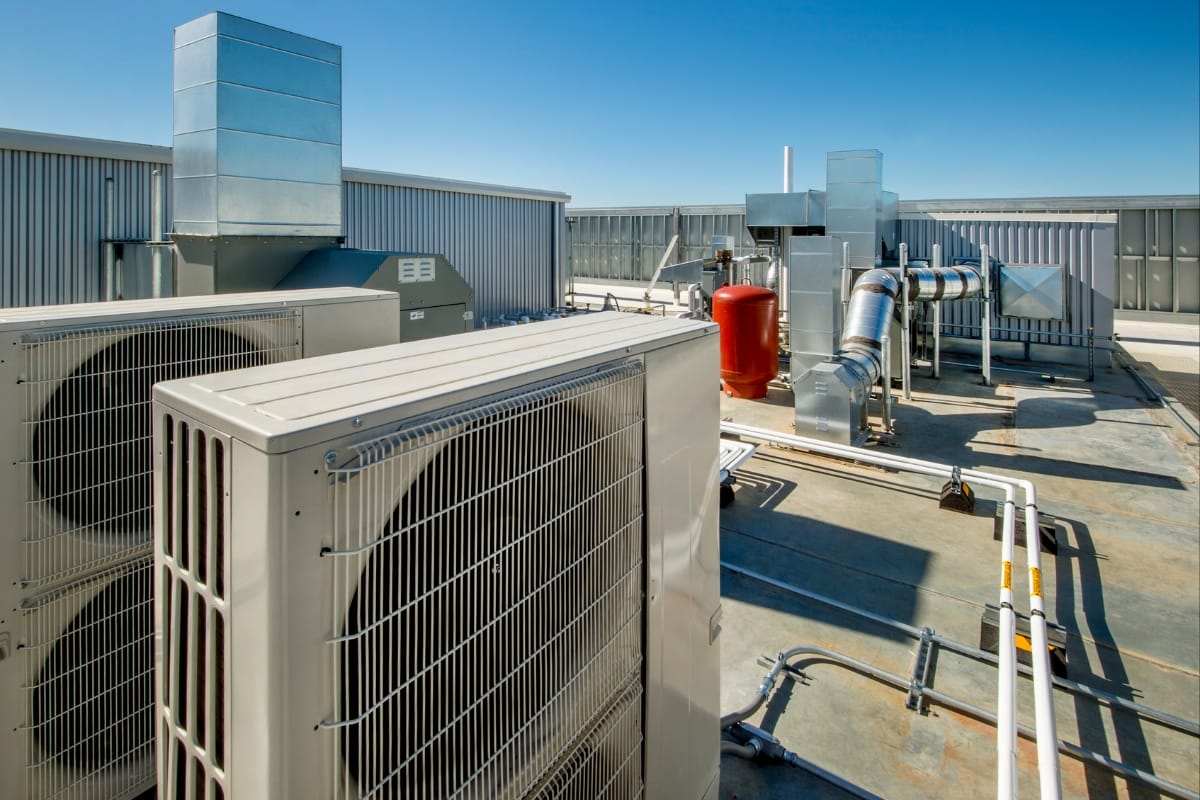
Atlanta summers bring intense heat and humidity, putting extra pressure on commercial HVAC systems. That’s why scheduling a summer HVAC tune-up isn’t just smart, it’s necessary. A system running under strain is more likely to break down when you need it most, and those breakdowns can quickly turn into costly repairs or lost business if indoor spaces become uncomfortable.
A summer tune-up ensures your system is ready to handle peak demand. Technicians can catch small issues like dirty coils, low refrigerant, or poor airflow before they turn into major problems. Service calls done in the morning or during cooler parts of the day also help reduce interruptions to your daily operations.
There’s also a clear financial benefit. A tuned system runs more efficiently, which means it uses less energy to keep temperatures steady. That translates into lower utility bills over the course of the season. Tuning also helps identify worn parts, faulty sensors, or inefficiencies in your system before they lead to bigger failures, at a time when HVAC service providers are often booked solid.
Ultimately, a summer HVAC tune-up is a preventative step that helps you avoid surprise repairs, manage energy costs, and maintain a comfortable environment for employees and customers. It’s one of the easiest ways to keep your system running smoothly during Atlanta’s hottest months.
Understanding the Impact of Summer Heat on Commercial HVAC Systems
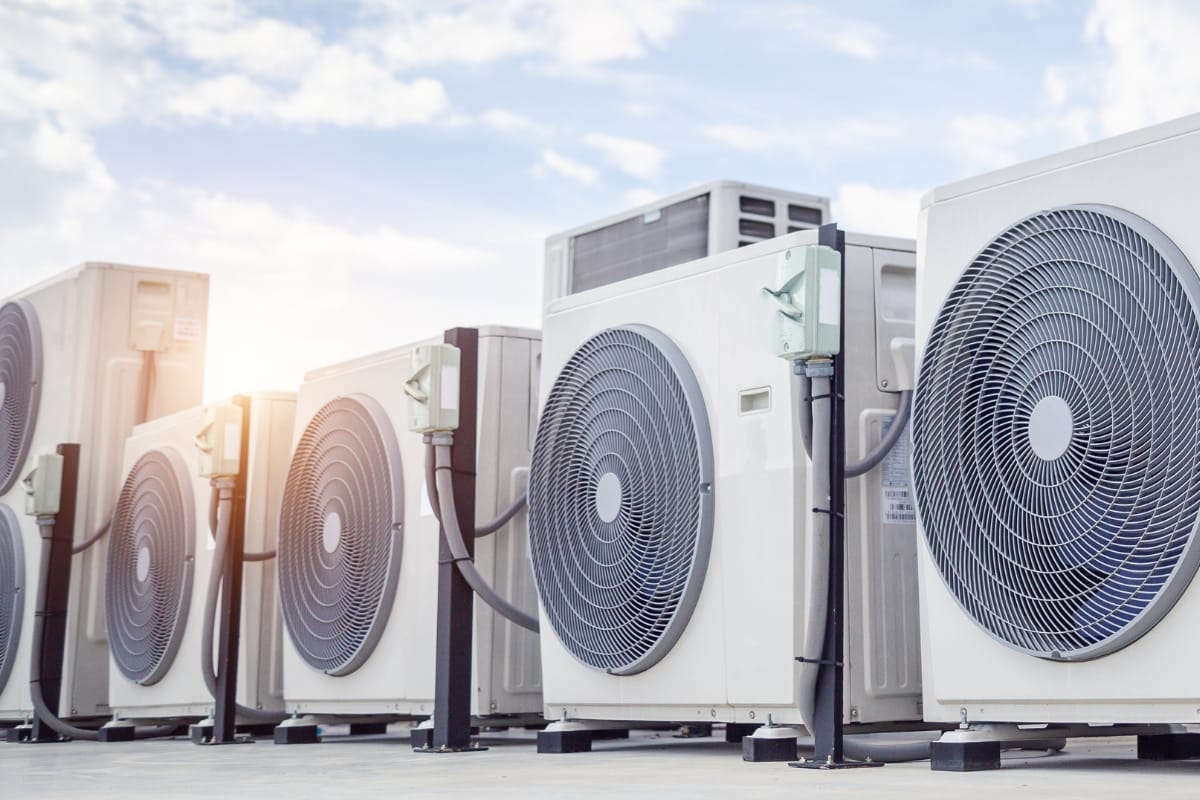
Atlanta summers bring more than just high temperatures, they also bring heavy humidity, and both factors put serious strain on commercial HVAC systems. When heat and moisture levels rise, key components like compressors, condensers, and fan motors are forced to work harder and longer to maintain indoor comfort.
This kind of workload can speed up wear and tear. Compressors may run hotter and longer, driving up energy use and increasing the risk of overheating or failure. Humid conditions add another layer of stress. When there’s more moisture in the air, evaporator coils have to pull double duty, removing both heat and humidity. If they can’t keep up, it can lead to condensation buildup, frost, or even frozen coils, which reduces efficiency and can cause the system to shut down.
Refrigerant pressure can also fluctuate under prolonged heavy use, making the system less stable and harder to regulate. This not only affects comfort levels inside the building but also adds to utility costs and increases the risk of component failure.
For facility managers, the takeaway is clear: the hotter and more humid it gets, the more pressure your HVAC system is under. That’s why regular maintenance, especially heading into or during summer, is essential. Proactive commercial HVAC tune-ups help ensure the system can handle the load, reduce the chance of costly breakdowns, and keep energy use in check. It’s a straightforward way to stay ahead of the heat and avoid disruptions during Atlanta’s toughest weather.
Key Components Checked During a Commercial HVAC Tune-Up
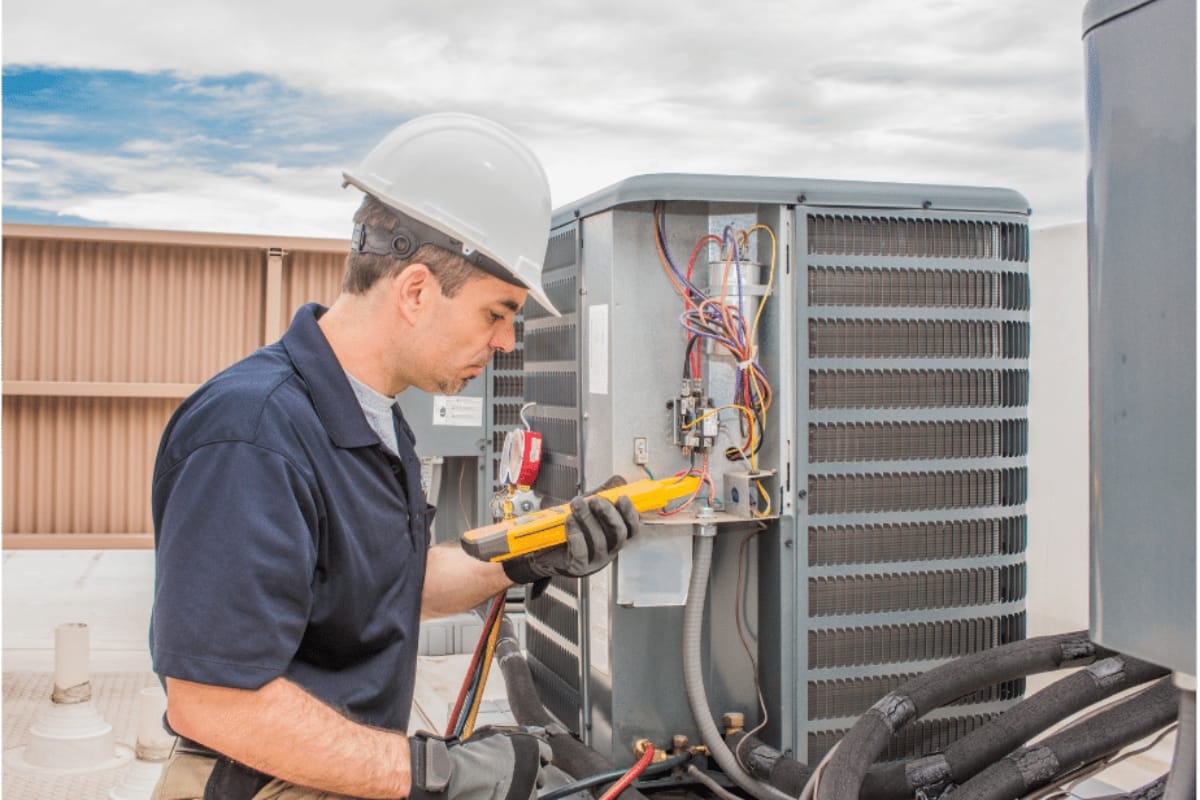
A professional commercial HVAC tune-up involves a detailed inspection of all major parts of the system to make sure it’s ready to perform during high-demand seasons. Technicians follow a standard checklist to catch wear, inefficiencies, and early signs of failure. Here are the key components typically reviewed:
- Air Filters – Replaced or cleaned to improve airflow and indoor air quality.
- Thermostats and Controls – Checked for accuracy and recalibrated if needed.
- Electrical Connections – Inspected for loose wires or corrosion, which can cause shorts or system failure.
- Condensers and Evaporators – Cleaned to improve heat exchange and prevent system strain.
- Refrigerant Levels – Measured and adjusted to prevent freezing or inefficient cooling.
- Blower Motors and Belts – Examined for wear and tested for proper operation.
- Drain Lines and Pans – Cleared to avoid clogs and moisture buildup that can lead to leaks or water damage.
- Ductwork – Visually inspected for blockages, leaks, or disconnected sections that could reduce efficiency.
- Fans and Coils – Cleaned and tested to ensure proper airflow and heat removal.
Maximizing Energy Efficiency Through Summer Maintenance
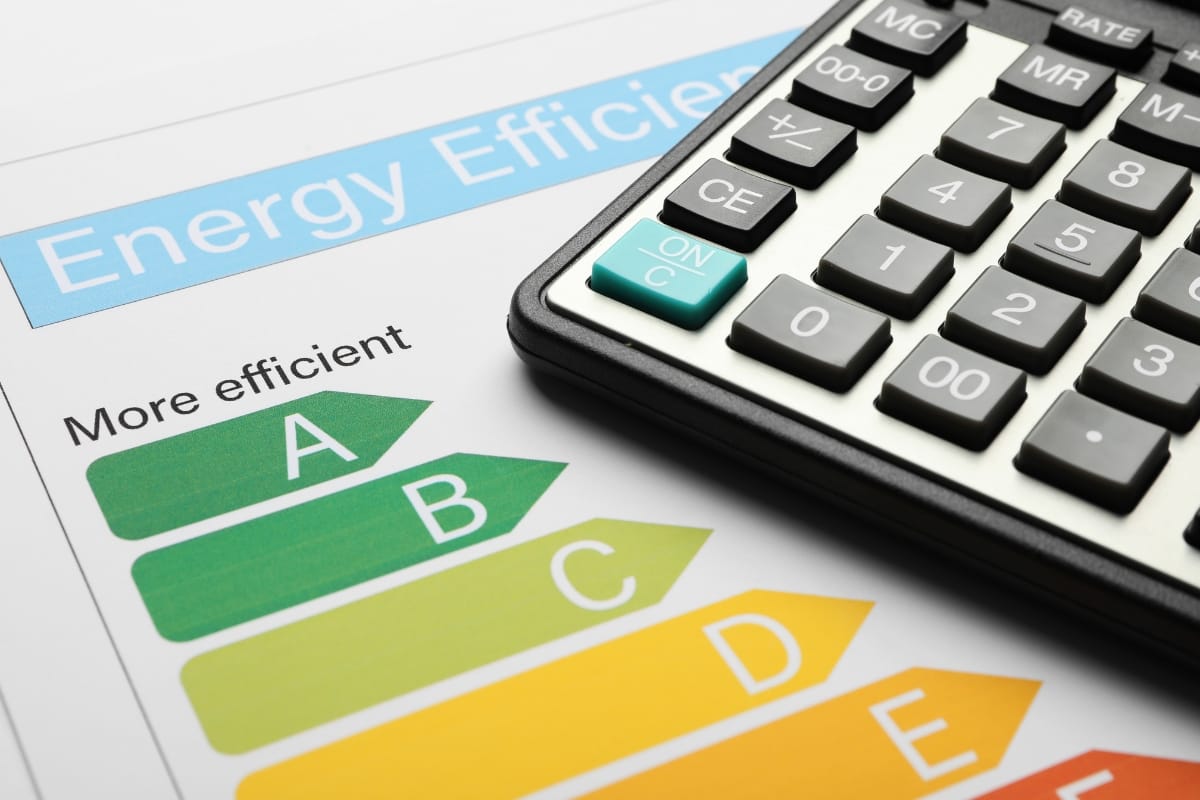
During Atlanta’s hottest months, energy bills tend to climb fast, especially for commercial buildings relying heavily on HVAC systems. That’s why summer maintenance isn’t just about preventing breakdowns; it’s also a practical way to reduce operating costs.
Routine commercial HVAC tune-ups help spot issues that quietly drive up energy use. Technicians recalibrate thermostats, check and tighten electrical connections, clean coils, and make airflow adjustments. Even small changes, like correcting fan speed or fixing a loose connection can lead to noticeable savings. For example, a properly calibrated thermostat helps avoid short cycling, which wastes energy and puts extra wear on the system.
For businesses looking to go a step further, adding energy-saving upgrades can have a big impact. Variable-speed drives, smart building controls, and energy recovery ventilators allow systems to adapt in real time based on usage. Technicians can also assess ductwork for leaks or insulation gaps that reduce efficiency.
When you combine routine maintenance with targeted upgrades, your HVAC system doesn’t have to work as hard to keep the building comfortable. That means lower utility bills, less wear on equipment, and a smaller environmental footprint. For property managers and business owners, it’s a smart way to get the most out of your system during the months it’s working the hardest.
Preventative Maintenance Tips for Commercial HVAC Systems in Atlanta
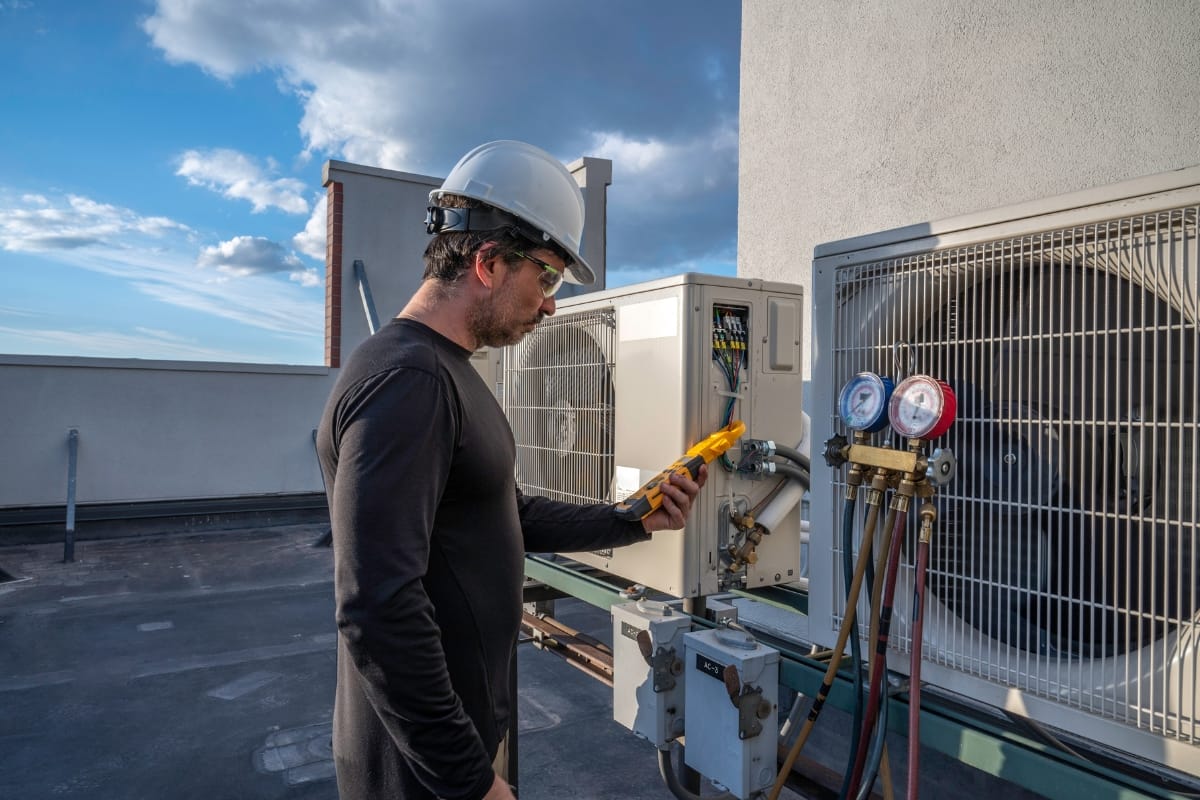
Preventative maintenance goes beyond booking seasonal service, it’s about keeping the system in good shape between visits. In Atlanta’s hot and humid summers, a few simple steps can make a big difference in performance and reliability.
Start by monitoring your system’s alerts and diagnostic messages. Many newer HVAC units come with digital displays or building management integrations that log errors or performance issues. Keeping an eye on these can help you catch small problems early before they turn into breakdowns.
Next, take a look outside. Make sure the area around outdoor units is clear. Trim back shrubs or grass, remove debris, and maintain at least two feet of clearance around condensers to allow proper airflow. Blocked airflow makes the system work harder and can shorten its lifespan.
It also helps to train in-house staff on basic upkeep. They can check for visible issues like clogged condensate drains, dusty vents, or dirty accessible coil surfaces. These small tasks, done regularly, help the system stay efficient and reduce wear.
Finally, plan ahead. Schedule professional HVAC tune-ups in late spring or early summer before demand peaks. This gives you time to fix issues and make adjustments without disrupting business during the hottest days.
Combining regular professional service with basic day-to-day care keeps commercial systems running more efficiently and reliably through Atlanta’s most demanding season.
Conclusion: Ensuring Optimal Performance and Comfort Throughout Atlanta’s Summer
Don’t wait until the sweltering heat pushes your system to its limits. Scheduling a commercial HVAC tune-up in the summer helps you catch minor issues before they become costly breakdowns. At Galgon HVAC & Mechanical Service, our certified technicians ensure your HVAC equipment runs efficiently with our commercial HVAC services, keeps your tenants comfortable, and protects your bottom line. Ready to lock in peak performance and avoid unexpected downtime? Call us today at (404) 352-1500 or visit our website to fill out a service request and set up your summer maintenance appointment.
